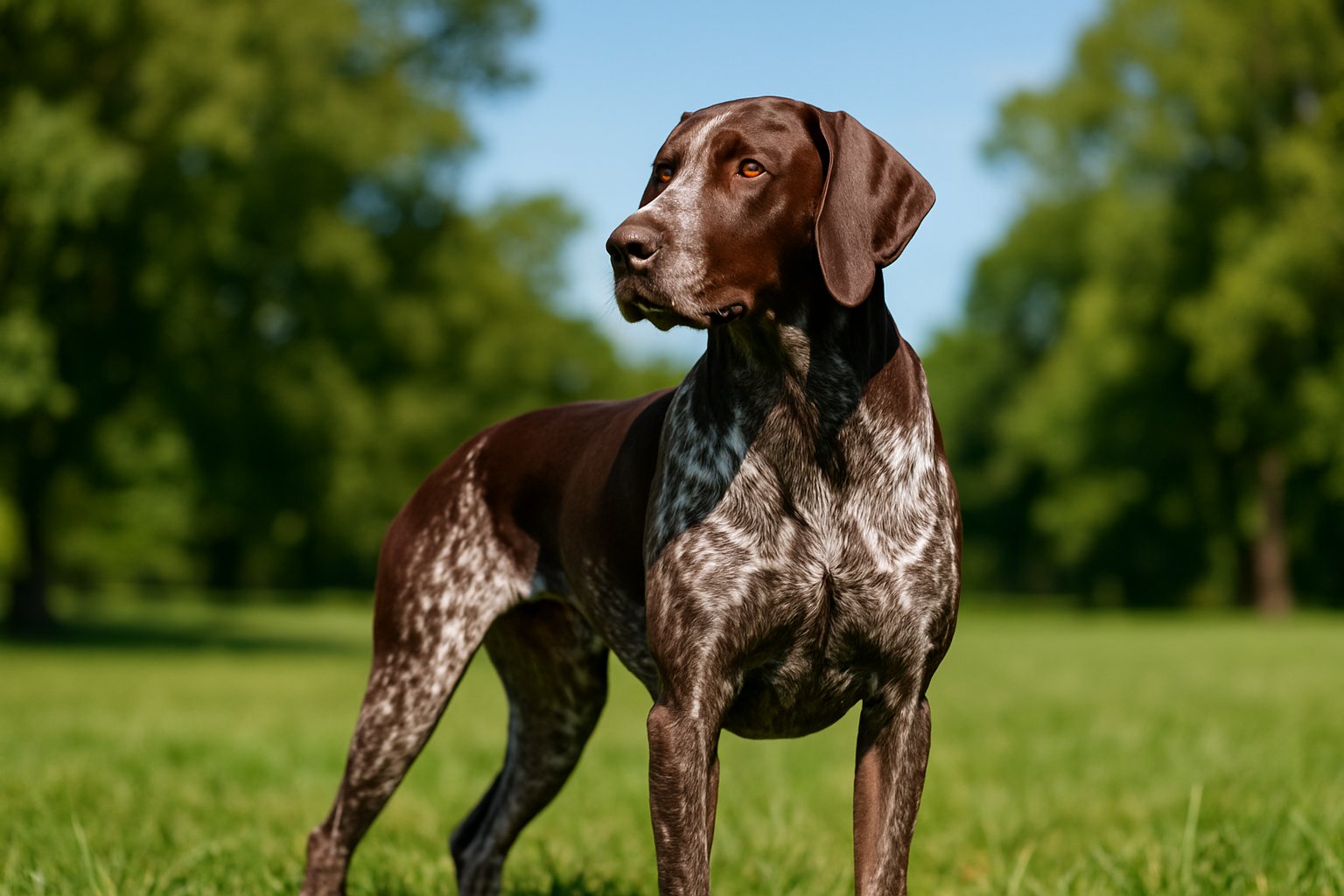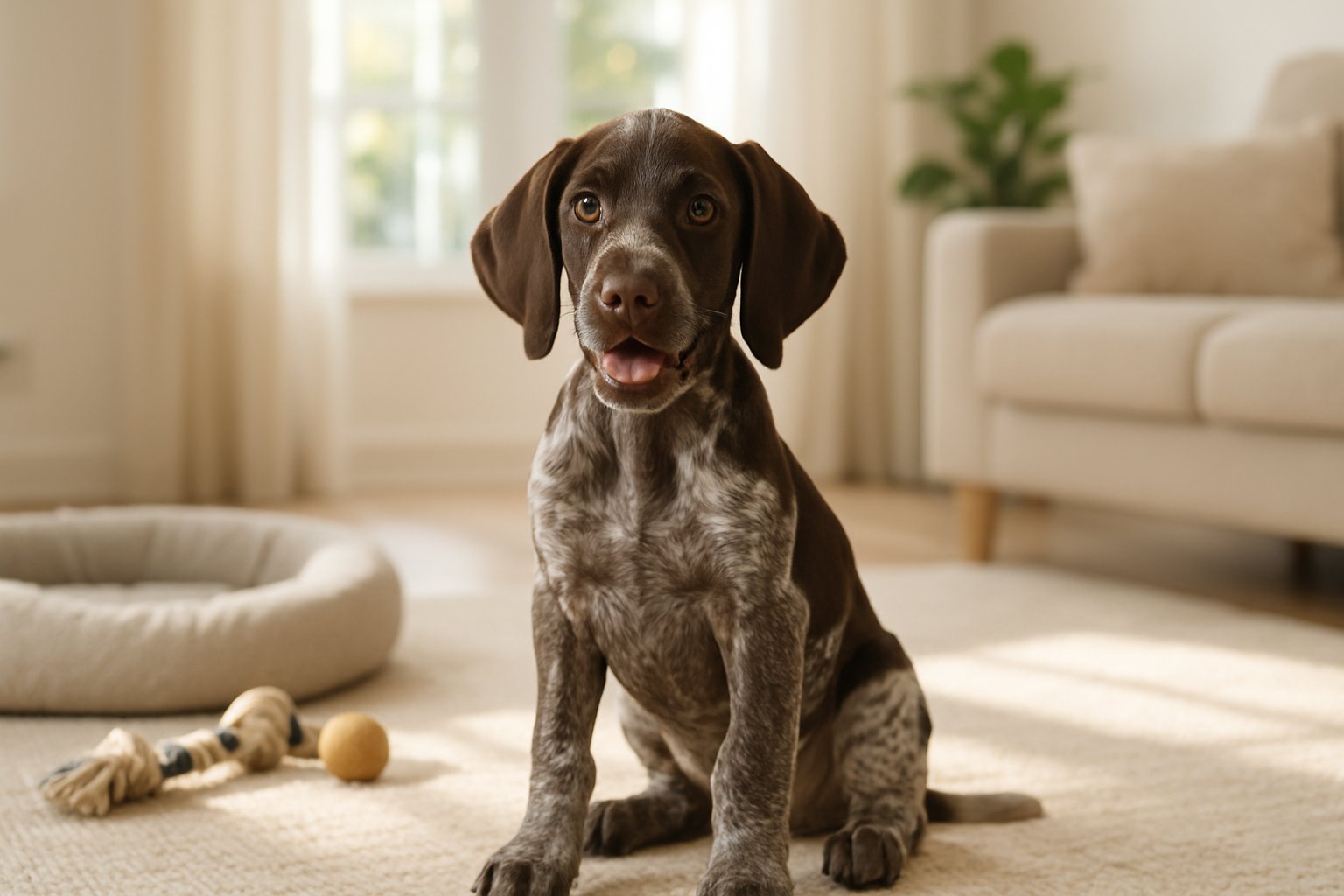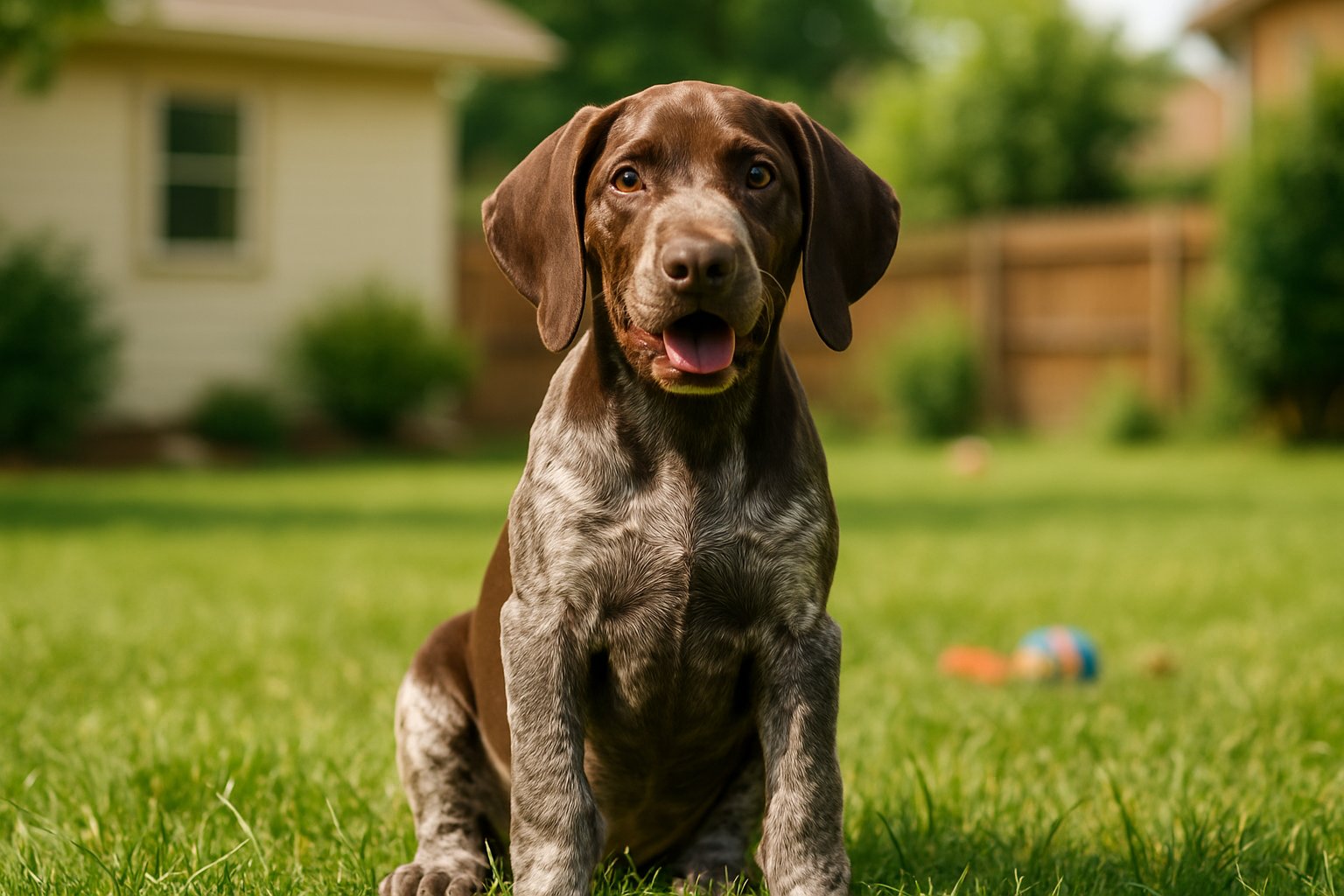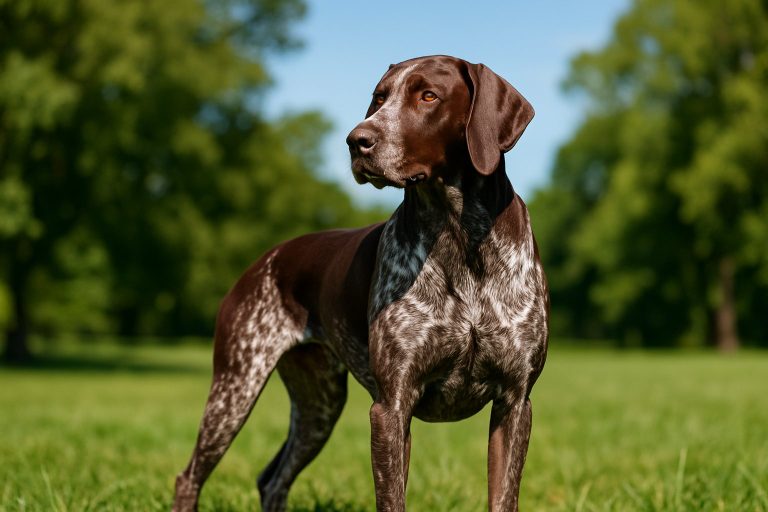About the German Shorthaired Pointer

The German Shorthaired Pointer is a medium-to-large dog that was bred for hunting and outdoor activities. You’ll notice their athletic build and short, smooth coat, which is usually liver or liver and white in color.
This breed is known for its high energy levels and need for daily exercise. If you enjoy running, hiking, or long walks, this dog could be a great fit for your active lifestyle.
Key Traits:
| Trait | Description |
|---|---|
| Size | Medium to large |
| Coat | Short, smooth |
| Color | Liver, liver & white |
| Energy Level | High |
| Lifespan | About 10-14 years |
German Shorthaired Pointers are often friendly with people and other pets. They usually form close bonds with family members and need regular attention and socialization. These dogs are smart and easy to train when you use positive reinforcement. Many people use them for hunting, but they also do well in activities like agility and obedience.
A German Shorthaired Pointer needs room to run and play. If you have a yard or access to outdoor space, your dog will enjoy it and stay happier and healthier.
Is This the Right Breed for You?

The German Shorthaired Pointer is a medium to large dog with high energy. You should be ready to spend plenty of time outside. If you love hiking, running, or playing fetch, this breed will fit your lifestyle.
These dogs are known for being smart and loyal. They are eager to learn new things and enjoy spending time with their families. However, they do need daily training and mental challenges. If you work long hours or travel a lot, a German Shorthaired Pointer may not be a good match. They can become bored and develop unwanted behaviors if left alone too much.
Quick facts:
| Trait | Details |
|---|---|
| Energy level | Very high |
| Shedding | Moderate |
| Grooming needs | Low |
| Good with kids | Yes, with supervision |
| Best for active owners | Yes |
Consider these points:
- Daily exercise is a must—at least an hour.
- They may try to escape if bored or left alone.
- They do best in homes with a yard.
Where to Buy a German Shorthaired Pointer Puppy or Dog

You have several options if you want to buy a German Shorthaired Pointer puppy or dog. It is important to look for responsible breeders and reputable sources.
1. AKC Marketplace
You can find German Shorthaired Pointer puppies from breeders who are registered with the American Kennel Club. The AKC Marketplace lists puppies for sale from breeders who follow AKC standards.
2. Local Breeders
Many breeders across the U.S. offer German Shorthaired Pointer puppies. Some breeders focus on family pets, while others specialize in hunting dogs. Research their background, visit their facility, and ask for health certifications.
3. Dog Adoption and Rescue Groups
If you are open to adopting, you can look for German Shorthaired Pointers through rescue organizations or local shelters. This can be a good way to help a dog in need and often costs less than buying a puppy.
4. Online Listings
Websites like Puppy Spot list puppies for sale. Be sure to check the seller’s reputation and verify all health records before making a decision.
Price Range Table
| Seller Type | Typical Price Range |
|---|---|
| AKC Breeder | $600 – $1,500 |
| Rescue/Adoption | $100 – $500 |
| Independent Breeder | $500 – $1,500 |
Make sure to ask questions, meet the puppy in person if possible, and request health records. This helps you make a smart and informed choice.
How to Choose a Reputable Breeder or Platform

When looking for German Shorthaired Pointer puppies, always start with research. Pick breeders with good reviews and a track record of healthy puppies. Check if they have been breeding for several years and if they follow breeding standards. Ask to visit the kennel or home where the puppies are raised. A responsible breeder will show you where the dogs live and let you meet the puppy’s parents. Clean conditions and friendly, healthy dogs are good signs.
Before buying, ask for health records and information about genetic health testing. Reputable breeders will share these details and explain the steps they take to prevent common health issues. Use platforms that screen breeders, like the AKC Marketplace and Puppy Spot to find reliable sellers. These websites list breeders who follow recommended practices.
Here are some questions to ask breeders:
- How long have you been breeding German Shorthaired Pointers?
- Can I meet the puppy’s parents?
- What health tests do you perform on your dogs?
- Do you provide a health guarantee?
Avoid buying from sellers who refuse to give information or don’t let you see the puppies in person. Puppy mills and unlicensed sellers put puppies at risk for health and behavior problems.
Getting Your New Pup Home
After finding your German Shorthaired Pointer puppy, planning for the trip home is important. Some breeders offer options like in-person pickup or meeting at a nearby location to make things easier. You can see an example from So Cal on Point GSP’s, which lets you pick up in Banning, California or nearby cities; more info is at their page.
Transport checklist:
- Bring a safe, comfortable crate or carrier
- Pack water and a small bowl
- Bring soft bedding or a towel
- Take some treats and toys
- Have cleaning supplies for any accidents
Before leaving, double-check that your car is set up for your new puppy. Make sure the crate is secure and that nothing can fall or tip over during the drive. If it’s a long trip, plan for a few short stops to let your puppy stretch and use the bathroom. When you arrive home, introduce your puppy slowly to its new environment. Keep the house calm and quiet. Set up a special spot with a bed, water, and food. This helps your puppy settle in and feel safe.
If you have other pets, give them time to adjust. Watch your puppy closely during their first interactions. Patience and supervision will help everyone adapt. Bringing your new puppy home is exciting. A little planning helps your puppy start off right and makes the adjustment easier for everyone.




